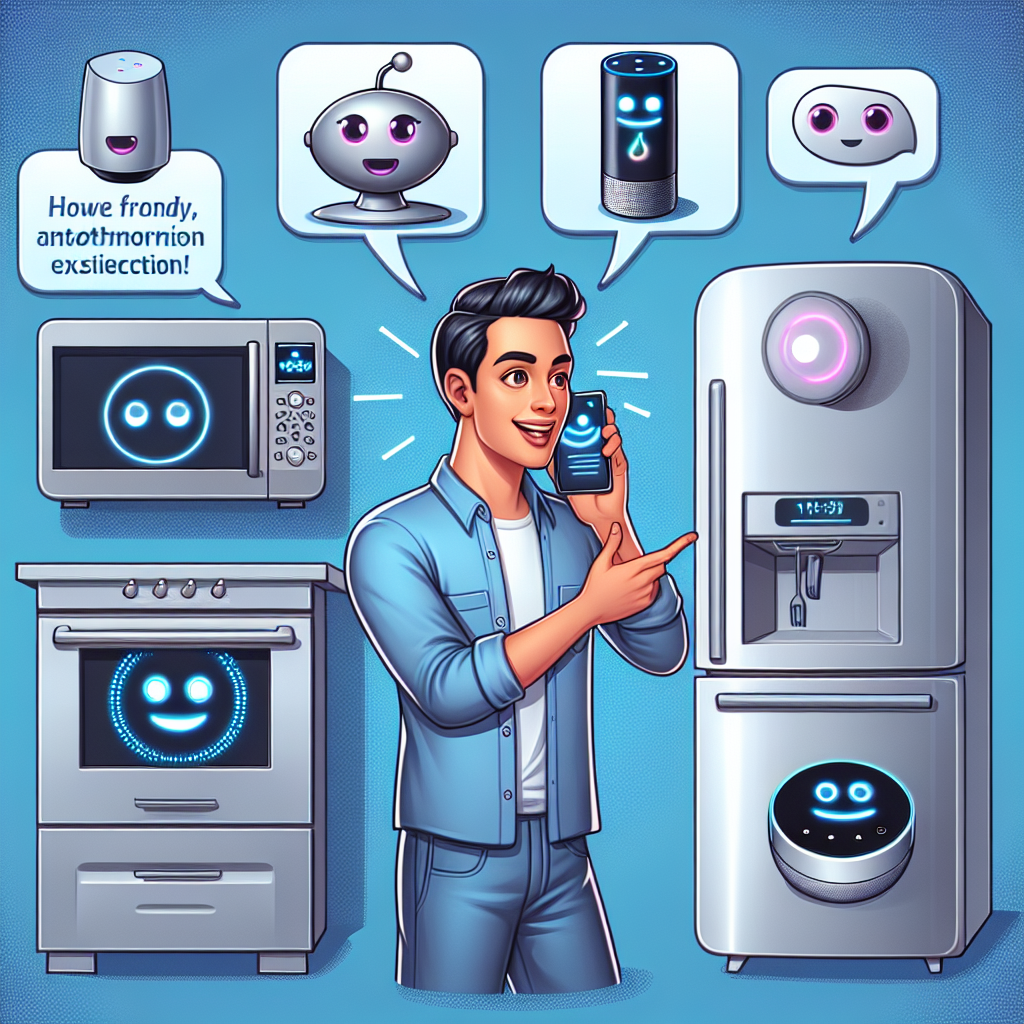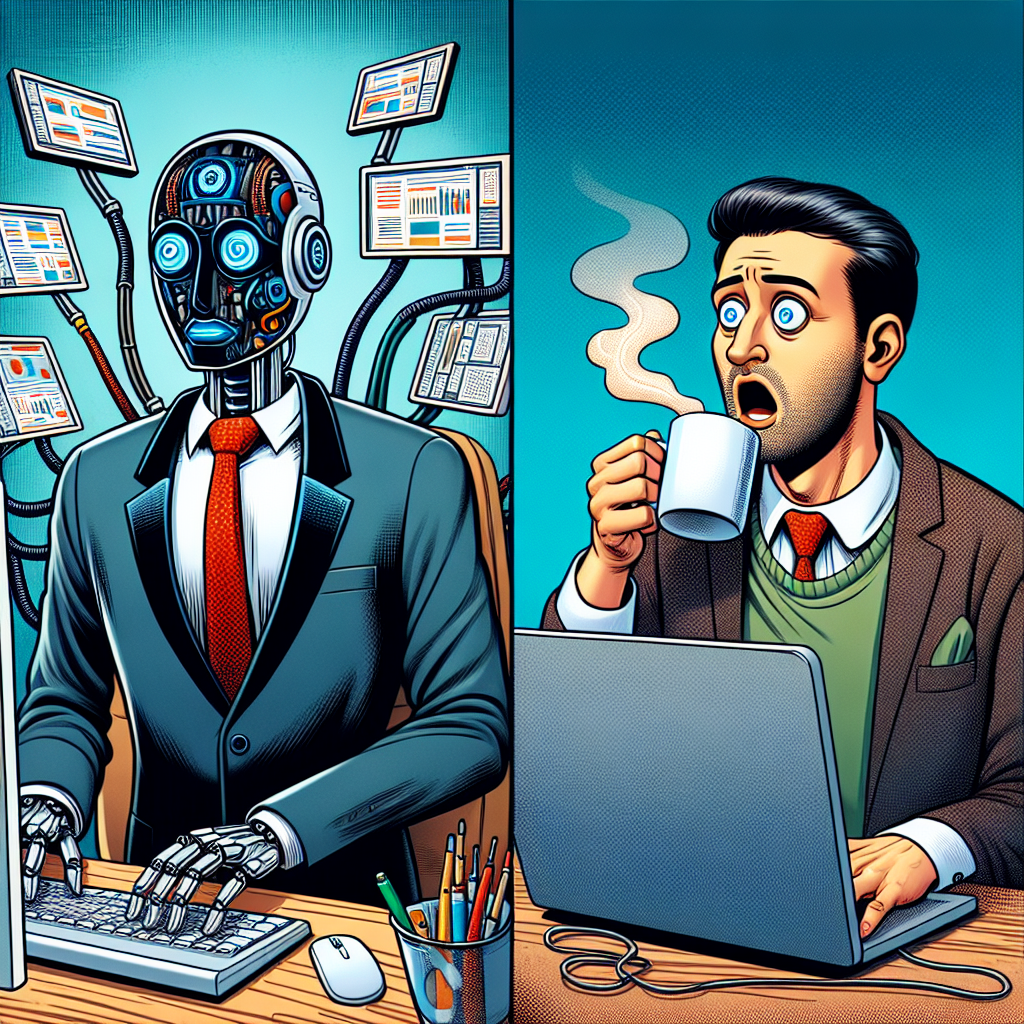So, there’s a robot sitting at your desk, wearing your favorite coffee mug and chatting up Karen from accounting. Sound familiar? Probably not—because despite all the doomsday headlines, AI isn’t exactly showing up in a trench coat to steal your job badge. Instead, these digital helpers are more like that super-efficient coworker who somehow manages to get everything done without breaking a sweat (or needing a bathroom break).
Welcome to the age of DIY AI workers—where the machines aren’t coming for your job; they’re coming for the parts of your job that make you want to slam your head against the keyboard repeatedly. And honestly? That sounds like a pretty sweet deal.
From Sci-Fi to Your Desktop: Customizable AI Digital Workers
Remember when having a computer that could talk back was just a sci-fi fantasy? Now we’re building our own AI assistants faster than you can say “Hey Siri, why aren’t you this useful?” The rise of customizable AI digital workers is transforming industries quicker than that one colleague who always changes the office thermostat when nobody’s looking.
These digital workers aren’t just fancy chatbots. They’re handling data entry (yawn), managing customer service (goodbye hold music), and even generating content (although I’d like to believe my job is safe… for now). What’s really revolutionary is how accessible this technology has become. AI SaaS creation platforms with low-code interfaces are democratizing what was once the exclusive playground of tech giants and companies with deep pockets.
“Small business owners no longer need a computer science degree to leverage AI,” says a recent industry report. “With today’s user-friendly AI tools, the barriers to entry have essentially collapsed.” The digital workforce of 2025 is becoming increasingly accessible to everyone.
A local bakery owner recently told me, “I created a custom AI assistant that handles all my inventory tracking and automatically places orders when supplies run low—and I still don’t know how to program my DVR.” That’s the beauty of these platforms—they’re making everyone look like a tech genius, regardless of their actual tech-savviness.
For entrepreneurs and small businesses, this means competing with the big dogs without needing their massive IT departments. A customizable AI digital worker can cost a fraction of a human employee while handling routine tasks 24/7 without complaining about the lack of windows in the office.
When Humans and AI Become Work BFFs
Remember that group project in school where you did all the work while others took credit? Working with AI is nothing like that. These digital sidekicks actually pull their weight, making intelligent collaboration the new workplace norm.
“Our team productivity jumped 42% after implementing customizable AI digital workers for our routine reporting tasks,” shared the founder of a marketing startup. “Suddenly we had time to actually think strategically instead of drowning in spreadsheets.”
AI tools are enhancing teamwork in surprisingly human ways. They’re improving communication by summarizing lengthy email threads (saving you from the dreaded “per my last email” passive-aggression), providing real-time data for better decision-making, and handling the tedious parts of project management that nobody wants to do.
The most successful teams aren’t replacing humans with AI—they’re creating superhuman workflows where each side does what they do best. The AI handles precision, consistency, and tireless data processing, while humans bring creativity, emotional intelligence, and the ability to understand why that client’s joke about spreadsheets isn’t actually funny but you should laugh anyway. This is what intelligent collaboration truly means.
Accidental Tech Geniuses: Personal Use AI Products
Remember when being “tech-savvy” meant you could successfully program your microwave clock? Now your grandmother is creating sophisticated AI workflows to organize her knitting patterns and automatically order yarn when supplies run low. We’re all becoming accidental tech geniuses thanks to personal use AI products that require zero coding knowledge.
These user-friendly AI tools are turning everyday tasks into opportunities for automation. Need to plan a family reunion? There’s an AI for that. Want to organize your digital photo collection by “pictures where Uncle Bob is wearing that hideous Hawaiian shirt”? AI’s got you covered.
A friend recently confessed, “I set up an AI to write personalized thank-you emails after business meetings. My clients think I’m incredibly thoughtful, but in reality, I just told the AI to ‘make it sound grateful but not desperate.'” That’s the magic of personal use AI products—they’re handling the mundane so we can focus on what matters (or just watch more Netflix, no judgment here).
The beauty of these tools is their accessibility. Platforms offering low-code solutions are making it possible for anyone to create customized AI workers tailored to their specific needs. You don’t need to understand machine learning algorithms or neural networks—you just need to know what problem you want to solve.
AI Marketplaces: Share, Sell, and Show Off Your Digital Workers
Remember trading baseball cards as a kid? The marketplace for customizable AI digital workers operates on the same principle, except instead of Randy Johnson’s rookie card, you’re trading an AI that automates invoice processing. Slightly less exciting, perhaps, but significantly more useful.
These marketplaces are creating entirely new ecosystems where developers and everyday users can share and sell their AI creations. Created a brilliant workflow that automatically generates personalized workout plans? Put it on the marketplace and earn passive income while others benefit from your innovation.
“I built an AI assistant that helps small restaurants optimize their inventory and reduce food waste,” shares a developer who turned his solution into a profitable side hustle. “What started as solving a problem for my friend’s café is now generating passive income from dozens of restaurants nationwide.” This exemplifies the growing trend of sharing and selling AI products in specialized marketplaces.
For developers and technical professionals, these marketplaces offer opportunities to showcase their expertise and collaborate with others. The open exchange of ideas is accelerating innovation at a pace that would make even Silicon Valley veterans dizzy. Someone builds an AI for scheduling social media posts, another person enhances it with sentiment analysis, and suddenly there’s a sophisticated digital marketing assistant that rivals agencies charging thousands per month.
The AI SaaS creation platform ecosystem isn’t just about technology—it’s creating new economic opportunities and challenging traditional software development models. Why spend years building a product when you can assemble customizable AI digital workers in days and start generating value immediately?
Sending Boring Tasks to AI Purgatory: The Joy of Workflow Automation
Let’s be honest—some work tasks are so mind-numbingly dull that they make watching paint dry seem like an extreme sport. The good news? Workflow automation is sending these tasks straight to AI purgatory, where they belong.
“I used to spend Fridays generating weekly reports,” says an operations manager at a manufacturing company. “Now my customizable AI digital worker handles it automatically, and I spend Fridays actually thinking about how to improve our processes. Plus, I can leave early for happy hour without guilt.”
These intelligent workflow automations are handling everything from data entry and document processing to scheduling and email management. They’re not just performing tasks—they’re orchestrating entire sequences of work with minimal human intervention. AI-powered workflows help businesses maintain consistent operations while significantly reducing costs.
What makes this particularly powerful is the ability to create customized solutions for your specific needs. Off-the-shelf software often forces you to adapt your processes to the technology, but with today’s user-friendly AI tools, you can build digital workers that conform to your unique workflows.
A small legal firm recently shared how they created a document review system using AI that reduced contract review time by 73%. “We’re lawyers, not programmers,” the founding partner explained. “But the low-code platform made it possible for us to build exactly what we needed without hiring expensive developers.”
The real magic happens when these automated workflows connect across departments and systems. Customer information flows seamlessly from marketing to sales to service, triggering the right actions at the right time without anyone having to send those annoying “just following up” emails.
Conclusion: Embracing Our New AI Colleagues
So, are DIY AI workers coming for your job? Well, they’re definitely coming for parts of it—specifically, the parts you probably don’t enjoy anyway. Think of them less as job thieves and more as those colleagues who volunteer to take meeting notes or organize the office birthday celebrations.
The rise of customizable AI digital workers represents a fundamental shift in how we approach work. We’re moving from the question of “human or machine?” to the more productive question of “how can humans and machines work together most effectively?” And that’s a much more exciting conversation to have.
At Zygote.AI, we believe that the future belongs to those who can harness the power of AI to amplify human potential, not replace it. Our vision is a world where everyone—from solo entrepreneurs to small business teams to developers—can easily create AI applications that solve real problems. Whether you’re using our low-code platform to build intelligence into your workflows or creating AI SaaS products to share or sell, you’re part of the revolution making work more meaningful and less mundane.
As we continue to develop and refine intelligent collaboration tools, we’re guided by a simple principle: technology should serve humanity, not the other way around. Our customizable AI digital workers are designed to tackle the repetitive tasks that drain your energy and creativity, freeing you to focus on what truly matters.
So instead of fearing the rise of AI workers, perhaps it’s time to welcome them with open arms—and maybe a spot at the company holiday party. Just don’t expect them to appreciate the open bar.









